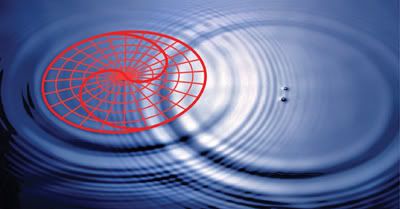TCM theory rests on the notion that we should all live in harmony and balance with Nature, with each other and with the Universe. Over the millennia, TCM practitioners have developed a number of theoretical frameworks that help explain the human condition, the Universe, and the interconnectedness of all things. Modern TCM practitioners have a deep reservoir of theoretical and practical knowledge from which to draw.
The main theories of Chinese Medicine are
1.) The Theory of Qi
2.) The Theory of Yin/Yang
3.) Five Elements Theory
According to ancient Taoist thought, Qi is the motive force in all living things and in the Universe. Qi takes on infinite forms in the physical world. All Qi is derived from Universal or Heavenly Qi. A convenient, if highly inaccurate translation of Qi is 'energy. In Traditional Chinese Medicine, there are numerous kinds of Qi, that are related to health and well-being. There is Yuan Qi, which is roughly translated as Original Qi or Congenital Qi. This is the Qi we are born with. It is the Qi we inherit from our parents. It is the Qi that animates us and gives us life. This also called Heavenly Qi, because when we come into this world we bring a bit of heaven with us. Yuan Qi can be strong or weak. Babies born with congenital deficiencies are said to have weak Yuan Qi. According to TCM theory, the Qi that one is born with is all the Qi that one gets for life. Except for certain difficult Qi building exercises in Qi Gong practice, Yuan Qi cannot be created. It must be 'topped up' by Acquired Qi, produced in the Spleen and the Lungs.
Ying Qi is also known as Acquired or Post Heavenly Qi. Ying Qi is produced by the Spleen from food and water and mixes with Yuan Qi which is stored in the Kidneys. Ying Qi is seen as replenishing one's Yuan Qi. Over the course of one's life, Yuan Qi is slowly depleted by day to day activities. A bad diet, illness, or Spleen disharmony will fail to produce sufficient Qi to restore reserves and the body suffers. Overindulgence in Sex, illness or other Kidney disharmony will deplete Yuan Qi faster than the Spleen can produce Ying Qi to top it up.
Another form of acquired Qi, is called Zhong Qi, or pectoral Qi. This type of Qi is produced in the Lungs from air and water and like Ying Qi helps to 'top up' Yuan Qi. In Chinese Medicine there is a unique relationship between the Lungs and the Kidneys.
Finally, there is Wei Qi, also known as defensive Qi. Wei Qi exists in the exterior layers of the body and the skin. Its main function is to warm the body and defend it against outside invasion of Heat, Cold, Wind, Dryness, or Dampness.
There are numerous other kinds of Qi in the body, but these are the main ones.
According to TCM theory Qi circulates in the body along its own energetic pathways, in the same way that blood circulates in the arteries and veins. Qi is also present in the blood and is said to be the energy that animates it and moves it along.
In TCM diagnosis one may observe specific signs and symptoms of Qi excess or deficiency. For example, one of the most common ailments, especially in Western culture is Liver Qi Stagnation. Liver Qi Stagnation has specific signs and symptoms such as pain in the diaphragm area, a wiry pulse, possibly headaches, redness or slight purplish colour along the sides of the tongue and irritability. A western diagnosis would show no organ damage, and conclude that nothing is wrong. At best western medicine would attempt to suppress the symptoms.
The theory of Qi allows practitioners to treat disharmonies, while they are still energetic in nature, before any physical damage occurs. Liver Qi Stagnation is a relatively minor and easily treatable condition. Prolonged stagnation in the body though if untreated will eventually become much more serious.
Finally, an aspect of Qi that even Traditional Chinese Medicine as it is practiced today, tends to overlook, is that it animates the Spirit as much as the body. For many, the practice of healing is a Spiritual practice, and movement of Qi ultimately is designed to heal the spirit. Bringing balance and harmony means to harmonize the body, emotions, mind and spirit. There are many Acupuncture points whose functions include calming the spirit, releasing emotional buildups, and promoting mental clarity. Very often these are the very same points that affect the body physically.
It was thought by ancient practitioners that the proper and determined cultivation of Qi in the body would eventually lead to 'spiritualization' of the body. That is the ability of the practitioner to transcend the limits of the physical body and achieve immortality.
In Chinese medicine, the manipulation of Qi to promote wellness at the energetic or metaphysical levels is as important as anything that is done to treat disease at the physical level.
Saturday, May 5, 2007
Subscribe to:
Post Comments (Atom)

No comments:
Post a Comment